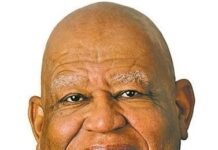 A new study led by Scott Duxbury, a doctoral student in sociology at Ohio State University, finds that White perpetrators of mass shootings are treated more sympathetically by the media than Black perpetrators of mass shootings.
A new study led by Scott Duxbury, a doctoral student in sociology at Ohio State University, finds that White perpetrators of mass shootings are treated more sympathetically by the media than Black perpetrators of mass shootings.
The study, which examined media coverage of 219 mass shootings, found that White shooters were 95 percent more likely to be described as mentally ill than Black perpetrators. The study found that 78 percent of all White shooters were described as being victims of societal ills compared to only 17 percent of Black shooters.
Duxbury stated that “much of the media coverage of White shooters framed them as sympathetic characters who were suffering from extreme life circumstances. But Black shooters were usually made to seem dangerous and a menace to society.”
The full study, “Mental Illness, the Media, and the Moral Politics of Mass Violence: The Role of Race in Mass Shootings Coverage,” was published on the website of the Journal of Research in Crime and Delinquency. It may be accessed here.











These results are consistent with previous research on media portrayal of persons accused of crimes based on race. For example, as far back as colonial reports of the rape of white women, the white men were portrayed as having made bad judgments or mentally unstable, while the black men were portrayed as inherently bad persons. That basic premise that white men can do bad things and still be good people was made by President Trump when he defended his son from criticism for the meeting with a Russian, calling Jr. a “good boy.” Media bias in reporting on black people hasn’t changed very much over the centuries.
I’m struggling to recall a credible number of “mass shootings” committed by Black Americans, particularly in juxtaposition against the numbers committed by whites on a seemingly regular basis. If the researchers are lumping into the numbers deaths from gang violence, then I think that is very inappropriate, and in essence INFLATES the number of “mass shootings” perpetrated by Blacks. Homicides due to gang violence emanate from a distinctly separate locus than those committed by whites — and hence should be separately categorized. When researching “mass shootings,” we need to focus on comparable situations — e.g. the recent school shooting in south Florida, compared to a similar one committed by Blacks. I do not doubt that the findings will be what the researchers now report : White shooters were mentally stressed or whatever, while Black shooters were simply “bad” people. But, at least, we’ll be comparing similar homicidal situations